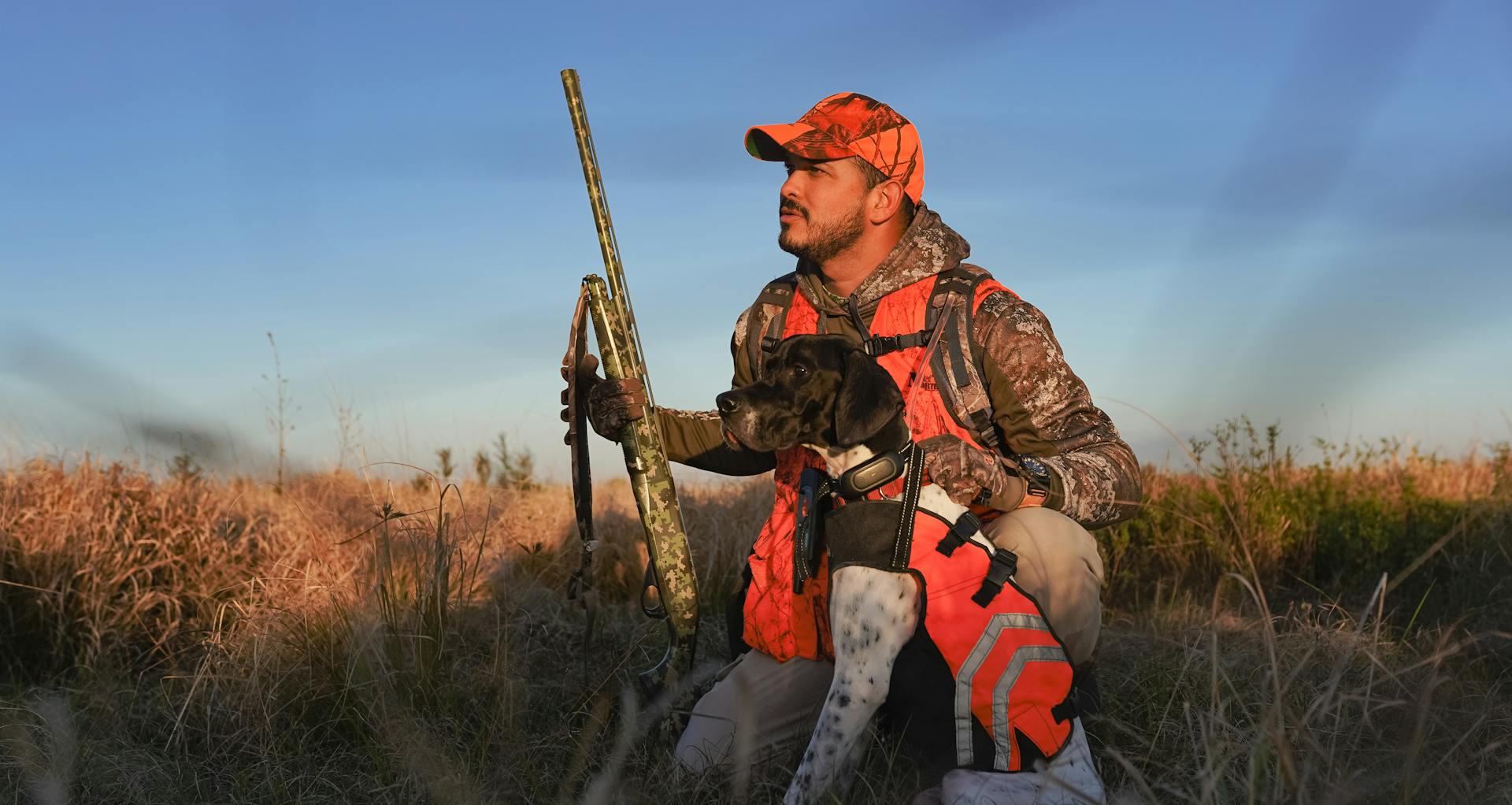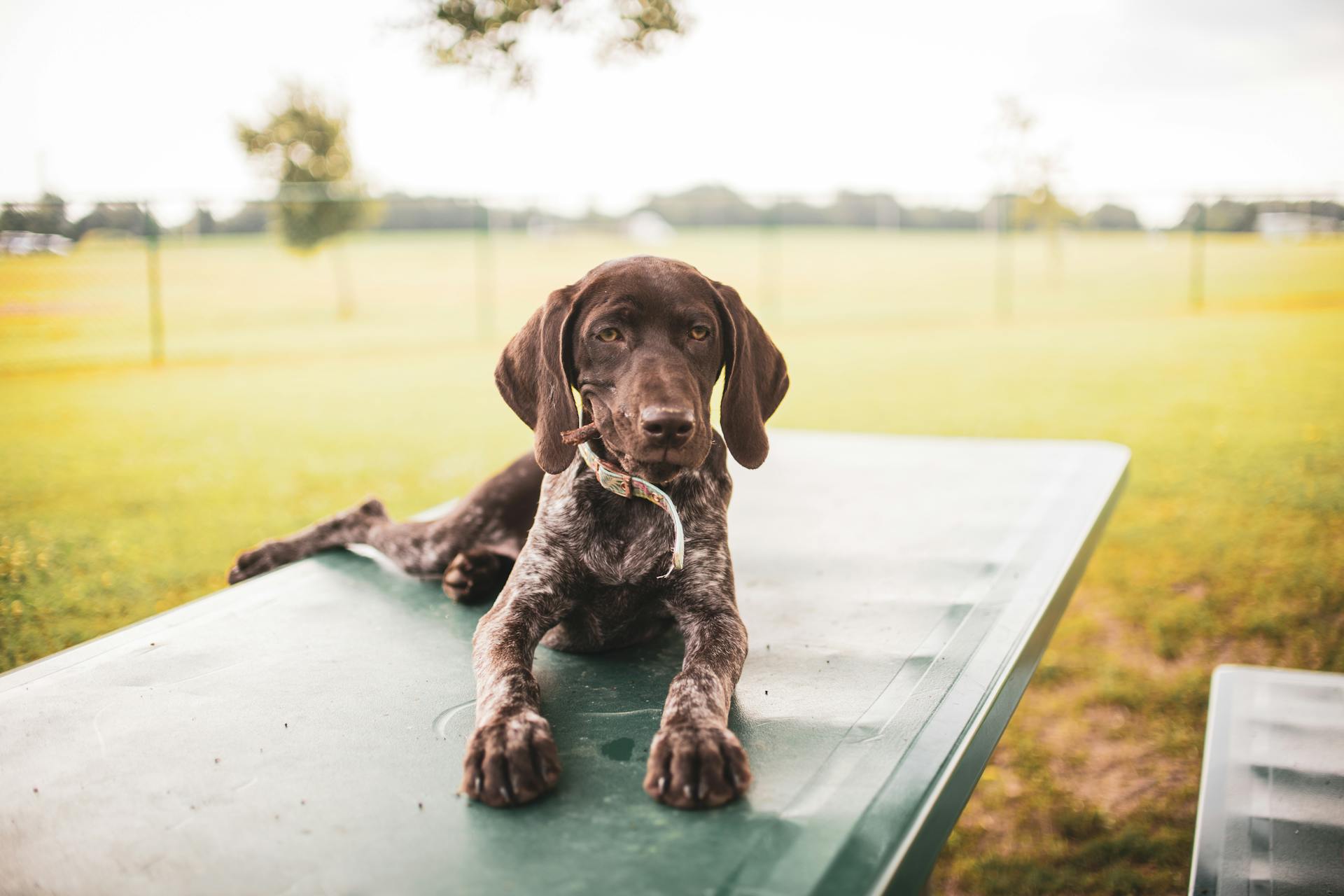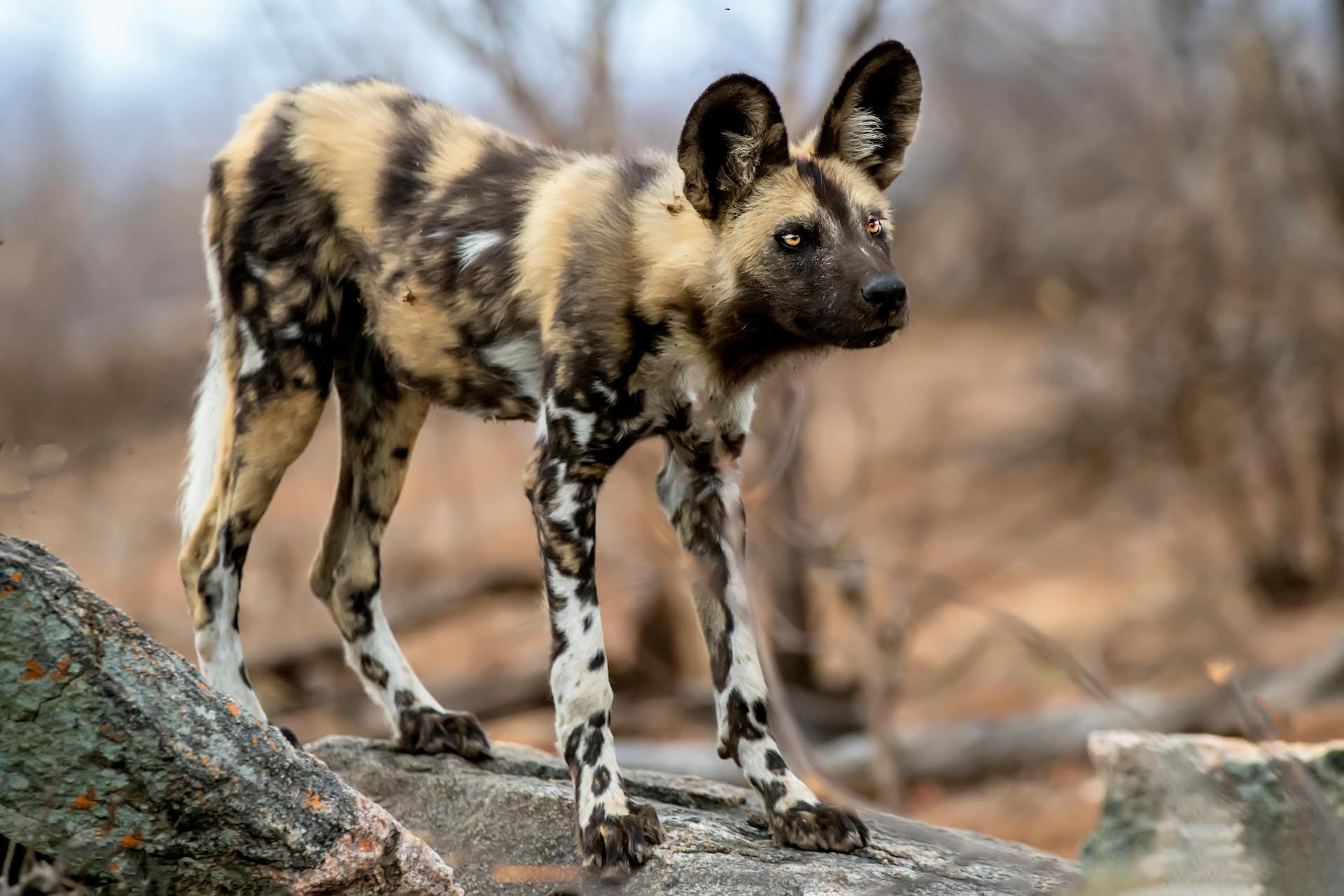
The Treeing Cur is a unique and fascinating breed. They are a type of hunting dog that originated in the southern United States.
Their short coats are easy to maintain, requiring only occasional brushing and bathing. This makes them a great choice for busy owners.
Treeing Cur's were bred to hunt small game, and their strong prey drive and energetic nature make them well-suited for this task.
Character and Temperament
The Treeing Cur is a strong-willed dog that can be quite independent, though it does have an eagerness to please its owner.
They're naturally skilled hunters who use all of their senses when tracking prey, and some even bark when in pursuit. This breed is not afraid to let you know about its thoughts and feelings.
Treeing Curs are alert and easily trainable, making them a great choice for active owners who want a loyal companion. However, they do require a firm hand at training to prevent them from becoming overly protective of their home and family.
On a similar theme: What Do Birds Do When Their Tree Is Cut Down?
This breed is generally friendly and affectionate towards family members of all ages, but it's essential to socialize them properly to ensure they get along with other dogs. With good socialisation, a Treeing Cur can learn to live as a pleasant family pet who listens well to its master.
Their melodious barking acts as a primitive means of communication, and they instinctively know how to find a scent, trace it, and pursue their prey until it's up a tree.
Care and Maintenance
The Treeing Cur is a low-maintenance breed when it comes to grooming. They have a single-layer coat that requires only occasional bathing, as frequent bathing can cause dry and irritated skin.
Brushing is necessary to control loose fur and add sheen to the coat, and should be done once or twice a week. This will also help prevent matting, which can be painful for your dog.
Treeing Curs are prone to ear infections due to their drop ears, so it's essential to keep their ears clean and dry. Clipping the excess hair inside the ear canal can help prevent infections.
A fresh viewpoint: Long Coat Chesapeake Bay Retriever
Regular nail trimming is also crucial, and should be done monthly to prevent overgrowth and discomfort. Brushing your dog's teeth three times a week can also help prevent dental expenses.
Here's a summary of the grooming tasks you'll need to perform:
By following these grooming tasks, you'll be able to keep your Treeing Cur happy and healthy.
Size and Appearance
The Treeing Cur is a highly variable breed when it comes to size, with adults standing between a foot and a half and two feet tall at the shoulder.
Their weight can range from a modest thirty pounds to a sturdy sixty pounds, making them a lean and powerful dog.
They have strong backs that are slightly longer than the dogs are tall, and their heads are typically rather broad and flat, tapering towards a muzzle that is slightly shorter than the length of the skull.
Their ears are medium-to-long rounded, dropping down close by the cheeks, and their eyes are widely set apart, with brown being the preferred color.
The Treeing Cur has a broad range of acceptable colors, with the exception of albinism, and their fur can be any length or pattern.
Size and Appearance
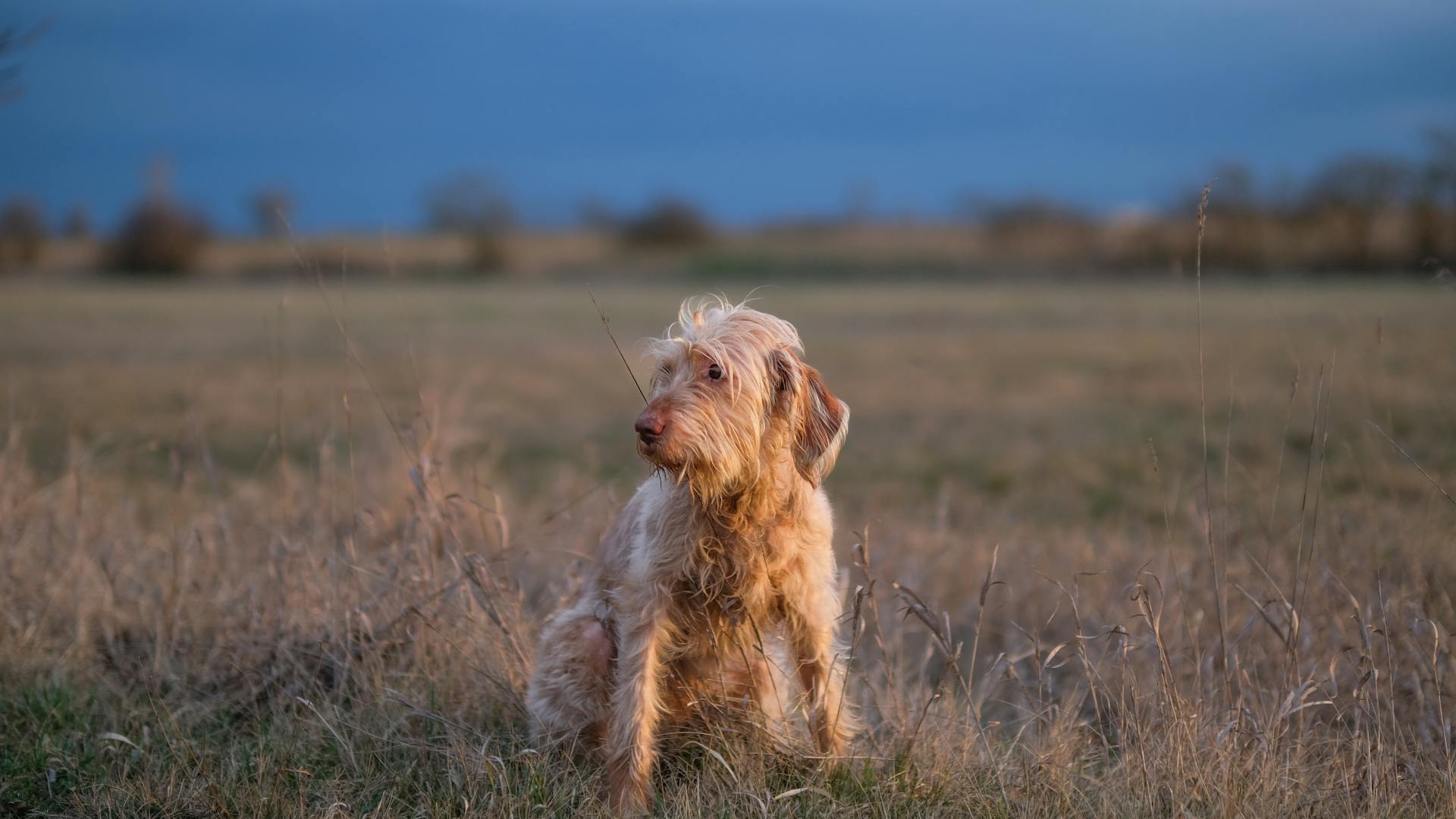
The Treeing Cur is a breed that's all about function over form. They were developed to be working dogs, not show dogs, so they come in a wide range of sizes and colors.
They're primarily used for hunting, guarding, and herding, which means they need to be versatile and adaptable. In fact, the Treeing Cur is often described as the most varied in size and colors of all the Cur breeds.
One of the defining characteristics of the Treeing Cur is its ability to thrive in a variety of environments and situations. They're known for being good-tempered and getting along well with all family members, making them an excellent choice for a multi-purpose farm dog.
Here are some key physical characteristics of the Treeing Cur breed:
Because the Treeing Cur was developed for its hunting prowess, its physical appearance is secondary to its ability to track and tree small game. In fact, breeders have prioritized hunting ability over physical conformation, which is why you'll see such a wide range of sizes and colors within the breed.
Appearance
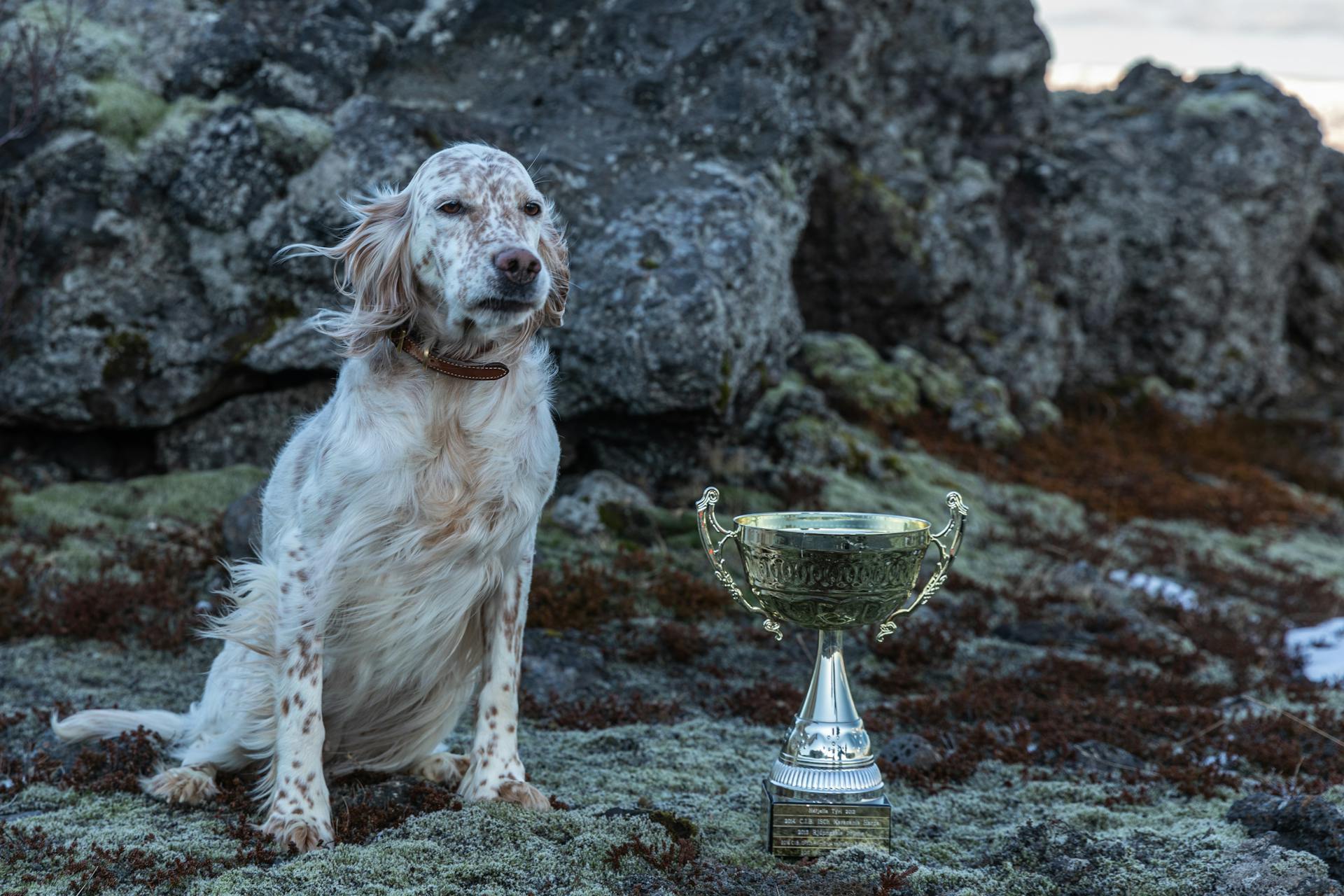
The Treeing Cur is a breed that comes in a wide range of sizes, from a foot and a half to two feet tall at the shoulder. Their weight can range from thirty to sixty pounds.
Their heads are typically broad and flat, tapering towards a muzzle that's slightly shorter than the length of the skull. A square black nose is preferred, but it can also be pink.
Their ears are medium-to-long and rounded, dropping down close to the cheeks. Their eyes are widely set apart and can be brown, green, yellow, or blue.
The Treeing Cur has a double coat, with a thick undercoat that's soft to the touch. Their top coat can be harsh or soft and comes in a variety of lengths.
They have strong backs, slightly longer than they are tall, and are endowed with a generous amount of muscle. Their limbs are particularly strong and lithe enough for an effortless gait.
Their tail can be any length, and a natural bob-tail is not uncommon. Their feet are described as 'cat-like' and have a good arch to them.
In terms of size, the Treeing Cur measures from 45cm to 60cm and weighs between 14kg and 28kg.
For your interest: Mountain Cur Tail
Coat Color and Grooming
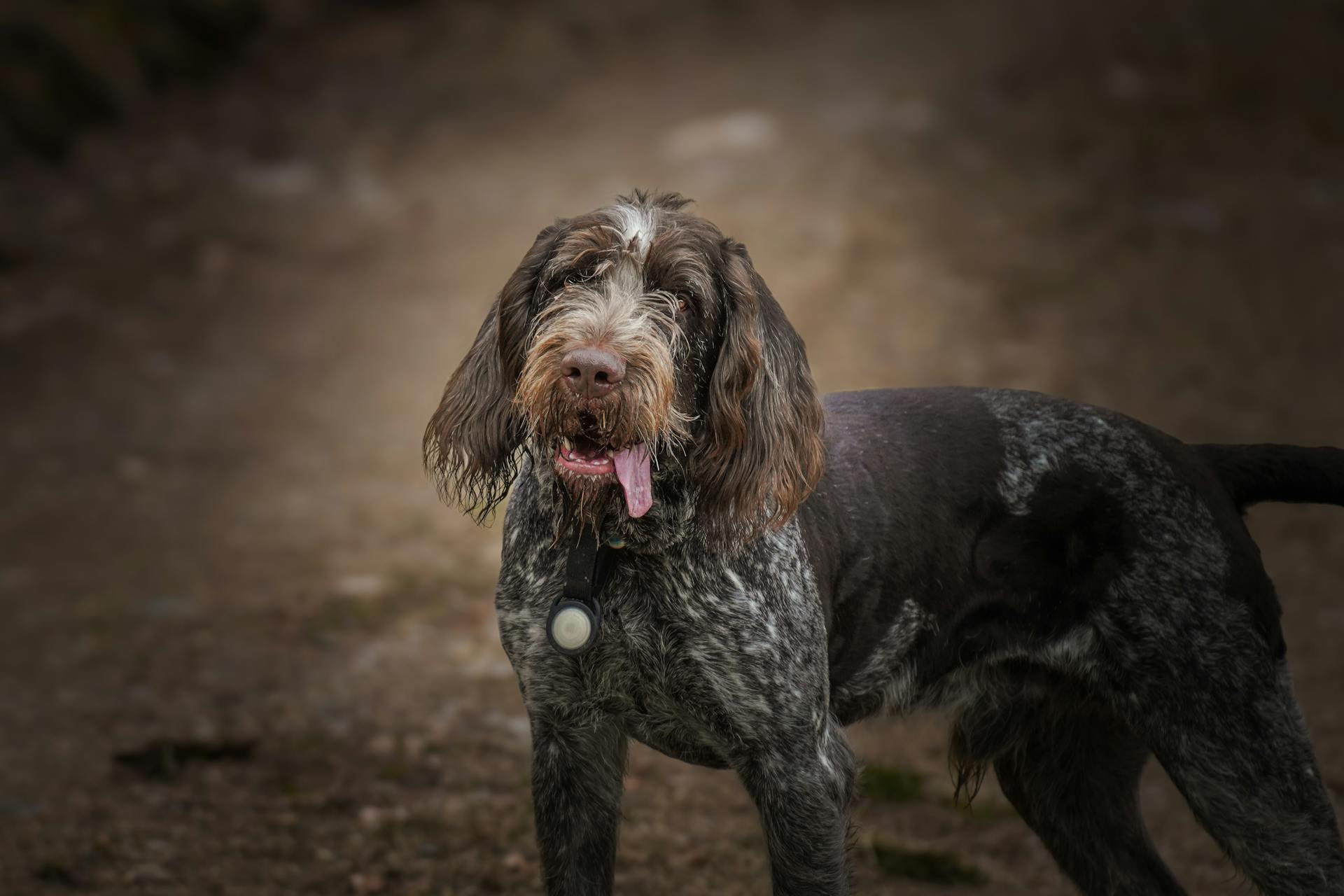
The Treeing Cur and its variants have relatively low-maintenance coats that require minimal grooming.
Dogs with single-layer coats, like the Treeing Cur, should only be bathed when absolutely necessary to avoid dry and irritated skin.
Brushing is generally required once or twice a week to control loose fur and add sheen to the coat.
The short double-coat of the Treeing Cur may be brushed once weekly, starting from puppyhood.
Regular nail trimming is essential to prevent overgrowth, discomfort, and potential injury, and monthly nail trimming is typically adequate.
Dogs with drop ears, like the Treeing Cur, are prone to ear infections, so it's crucial to keep their ears clean and dry, and consider clipping excess hair inside the ear canal.
Weekly brushing with a firm bristle brush or a grooming mitt is usually sufficient for dogs with short, dense coats, like the Treeing Tennessee Brindle.
More frequent brushing may be necessary during shedding seasons to manage the increased amount of hair.
Curious to learn more? Check out: Boston Terrier Ears
Trainability
The Treeing Cur is a breed that requires firm guidance from an early age to prevent overly protective tendencies. Without clear direction, they can become aggressive or uneasy around friends and family.
They are quick to learn, making them a pleasure to train for an experienced trainer. A committed training approach can help them learn quickly and develop a strong bond with their trainer.
Their desire to make their trainer happy makes them a particularly good student, always eager to please and learn. This trait is a result of their responsive nature, which allows them to pick up on commands and instructions with ease.
Similar Breeds
If you're looking for breeds that are similar to the Treeing Cur in terms of maintenance, you'll find that the Plott Hound is a 94% match. This means they share many of the same characteristics and needs.
The Plott Hound is a great example of a breed that, like the Treeing Cur, requires regular exercise and mental stimulation to prevent boredom and destructive behavior.
Here are some other breeds that are similar to the Treeing Cur in terms of maintenance:
If you're looking for breeds that are similar in size to the Treeing Cur, you'll find that the Braque Francais Pyrenean is a 100% match. This means they are essentially the same size.
The Braque Francais Pyrenean is a great example of a breed that, like the Treeing Cur, requires regular exercise and a large living space to accommodate their size and energy level.
Here are some other breeds that are similar in size to the Treeing Cur:
- Braque Francais Pyrenean - 100% Similar
- Pit Heeler - 98% Similar
- Bohemian Shepherd - 98% Similar
- Russo-European Laika - 98% Similar
- Australian Eskimo - 97% Similar
Frequently Asked Questions
What is a Treeing Cur mixed with?
A Treeing Cur is a mixed breed that combines characteristics of hound dogs, terriers, and feist breeds. This unique blend of breeds results in varying sizes and colors.
What makes a Treeing Cur?
A Treeing Cur is a small to medium-sized dog with a broad head, short muzzle, and a strong Cur influence in its appearance. If you're curious about this unique breed, learn more about its characteristics and traits.
Is a cur a Hound dog?
Yes, a cur is classified as a Hound group dog, specifically belonging to the Cur breed within this group.
Is a cur a vicious dog?
No, black mouth curs are not innately aggressive, but they can develop territorial and aggressive tendencies with proper training and socialization
Featured Images: pexels.com

